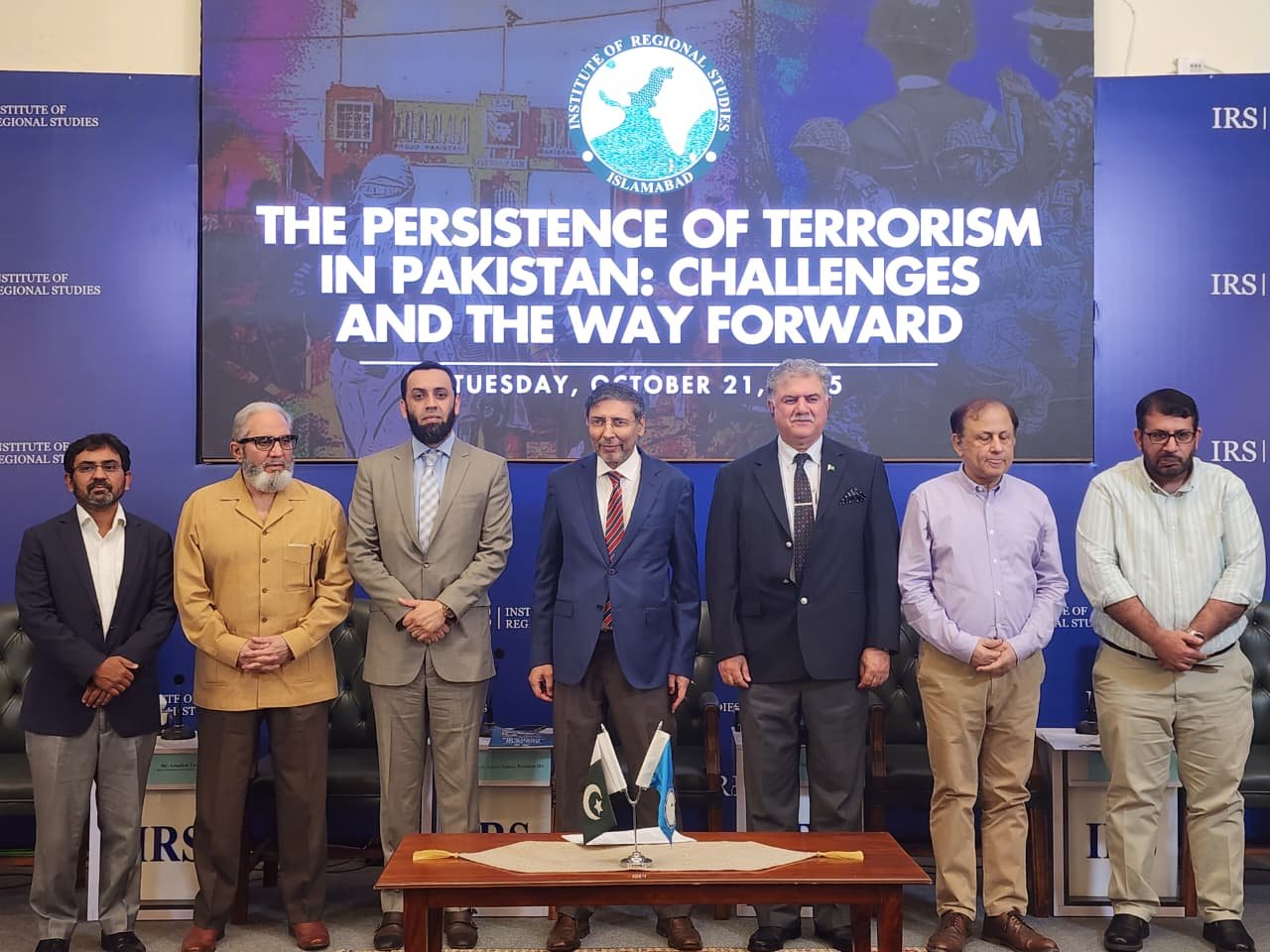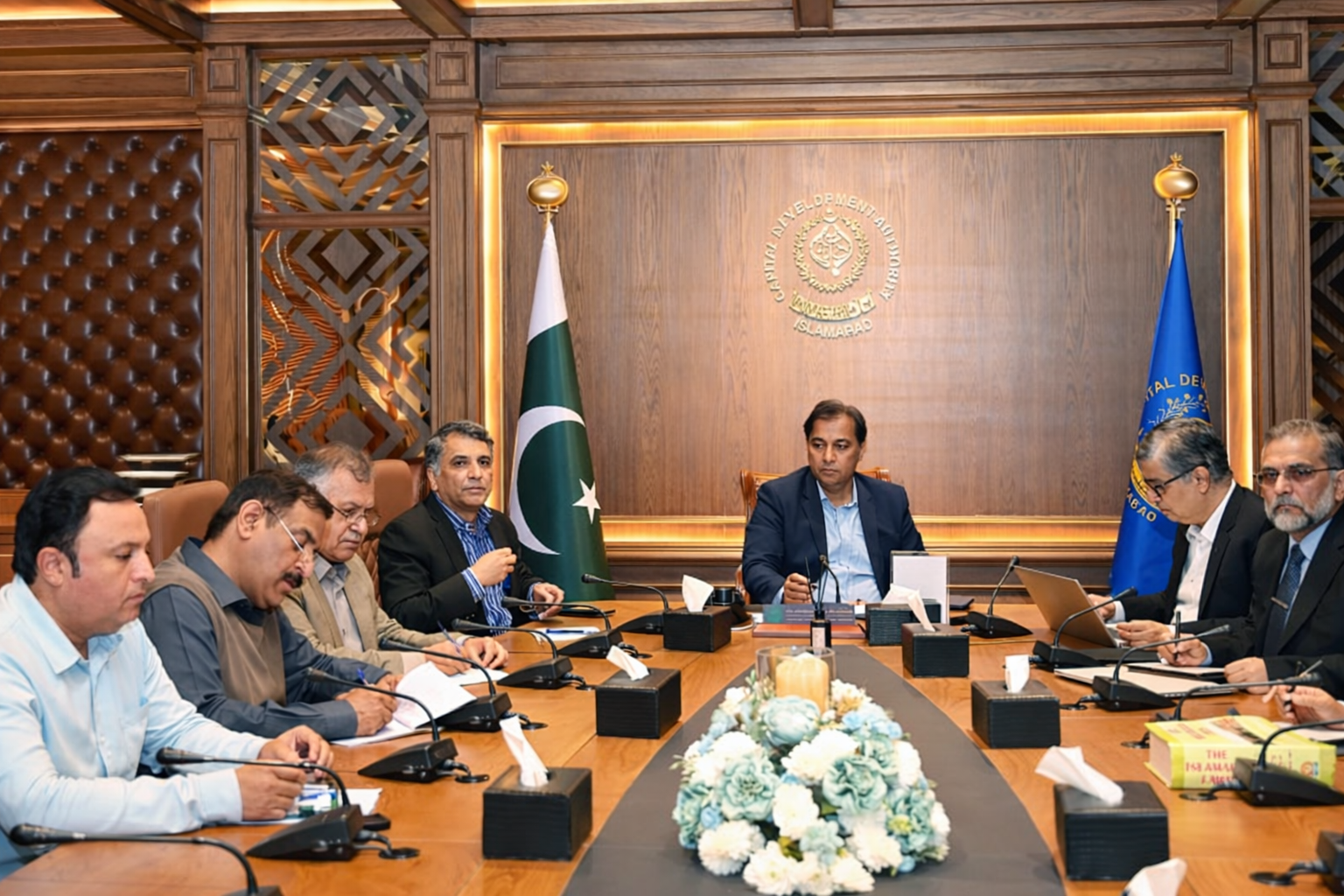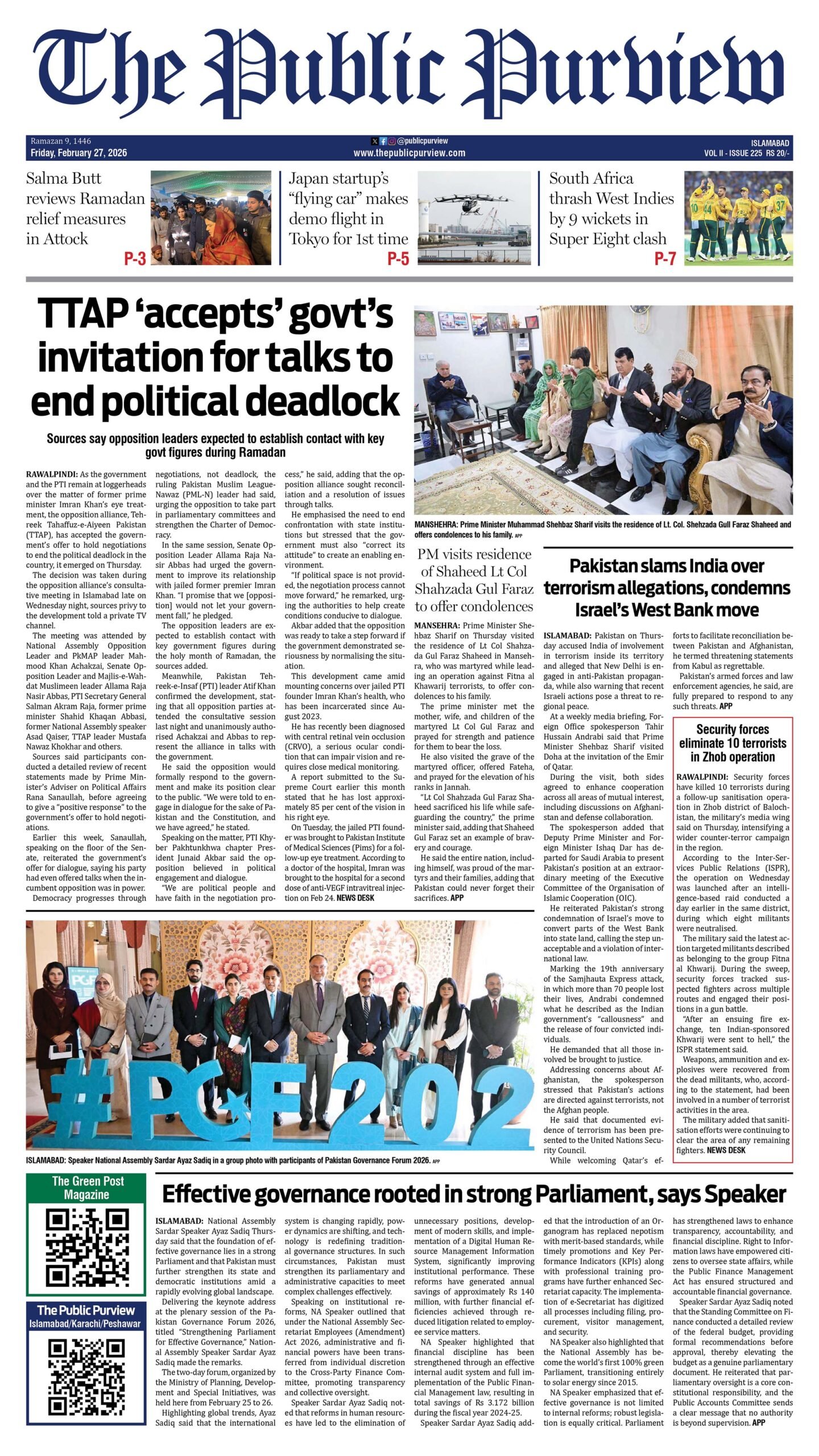Islamabad — Pakistan’s role as a frontline state in the global fight against terrorism was reaffirmed at a high-level seminar organized by the Institute of Regional Studies (IRS), Islamabad. Titled “The Persistence of Terrorism in Pakistan: Challenges and the Way Forward,” the event convened senior military officials, strategic analysts, policymakers, and academics to assess evolving threats and chart a national response.
Federal Minister for Information and Broadcasting Attaullah Tarar underscored Pakistan’s unwavering commitment to eradicating terrorism in all its forms. “Pakistan’s sacrifices in the global fight against terrorism stand unparalleled,” he said, praising the armed forces and calling for unified national resolve. Tarar cited external support from India and Afghanistan to militant groups, asserting that Pakistan remains a steadfast bulwark against the menace. He emphasized the urgent need for cohesive, nationwide implementation of the National Action Plan to ensure lasting peace.
Ambassador Jauhar Saleem, President of IRS, warned that the issue remains a serious threat, with hundreds of attacks reported this year. He attributed much of the violence to external proxies and expressed concern over the Taliban’s failure to uphold counterterrorism commitments. Saleem highlighted Pakistan’s dual-track approach—active diplomacy alongside kinetic operations—and voiced cautious optimism following the Doha ceasefire and ahead of the Istanbul dialogue. He urged Afghanistan to choose between fostering peaceful relations with Pakistan or falling prey to destabilizing regional influences.
Lt. Gen. (Retd.) Khalid Rabbani, former Corps Commander Peshawar, stressed that a whole-of-nation approach is imperative. “The fight against terrorism cannot be won by security forces alone,” he said, calling for political consensus and societal resilience. He also emphasized the interdependence of Pakistan and Afghanistan’s security, noting that instability in one directly undermines peace in the other.
Maj. Gen. (Retd.) Inam Ul Haq reported a sharp rise in cross-border terrorism, citing 585 Afghan-backed attacks up to October 2025—up from 521 in 2024 and 306 in 2023. He detailed a series of unprovoked attacks between October 11–15, allegedly launched by IEA forces in collusion with TTP and other militant groups, underscoring active coordination between the Taliban regime and anti-Pakistan networks.
Dr. Muhammad Feyyaz highlighted the lack of academic engagement with terrorism’s long-term societal impacts. He called for stronger linkages between academia and policymakers to produce more informed, policy-relevant research.
Mr. Abdul Basit, Senior Associate Fellow at RSIS Singapore, attributed the persistence of terrorism in Pakistan to regional geopolitics, ideological extremism, and governance failures in Afghanistan. He urged a revamp of Pakistan’s counterterrorism framework, noting that current non-kinetic responses lag behind. Basit advocated for a balanced strategy combining kinetic and non-kinetic measures to address the evolving and multidimensional nature of the issue in the region.
The seminar concluded with a consensus that Pakistan’s counterterrorism efforts must be holistic, resilient, and adaptive to shifting regional dynamics—anchored in unity, diplomacy, and strategic foresight.
For related stories, visit here: https://thepublicpurview.com/?s=terrorism
Stay updated with verified reports, impactful headlines, and real-time coverage. We bring you trusted news from across Pakistan and beyond. For full stories, in-depth analysis, and exclusive updates, follow or visit our website. Your source for credible journalism, national resilience, and the voices that matter most—delivered with clarity, urgency, and integrity.
For climate-related stories, visit: The Green Post







 Today's E-Paper
Today's E-Paper